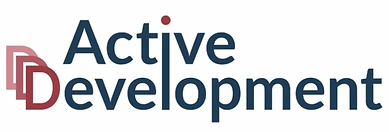
Are you a youth leader, teacher or youth coordinator? Do you want to develop soft skills of your students, which will help them in
succeeding the job market, regardless of their profession?
Do you realise how important soft skills are on the labor market, but you don’t know how you can support young people in their development?
ACTIVE DEVELOPMENT this is something for you. Use the games we have prepared in your school / organisation. Combine youth sports and physical activity with the development of key competences.
VIDEO
We invite you to our YouTube channel, where you can see ACTIVE DEVELOPMENT games video records.
PILOT PROJECT IN POLAND
The participants were first year students from 5 different high schools. The aim of the pilot project was to introduce students to the ACTIVE DEVELOPMENT project, emphasise the importance of soft skills on the labor market and test the games developed by My Future. Based on the pilot project, the games were further developed and tested on an international pilot project in Portugal.
INTERNATIONAL PILOT PROJECT IN PORTUGAL
PARTNERS

Partners: Collective Innovation – Norway, EduPlus – Portugal
Numer projektu: 2021-2-PL01-KA220-YOU-000050669000
